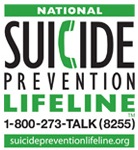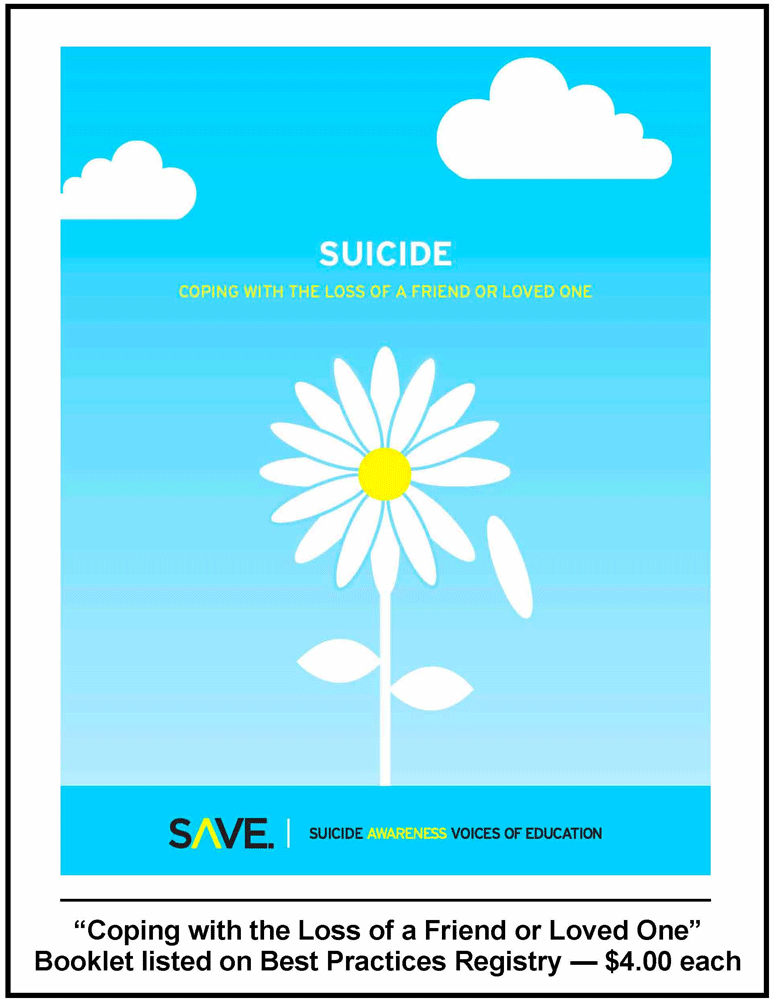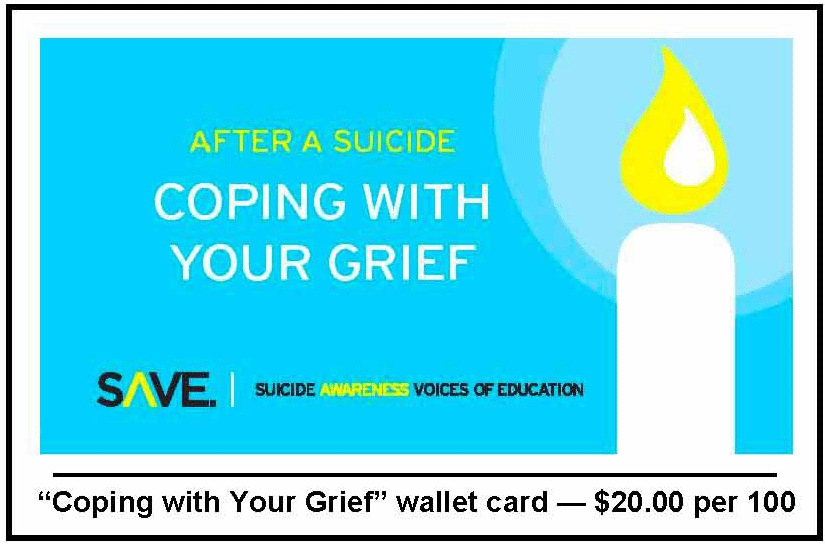Mental Health Crisis Guidelines Apply in Suicide Loss
Grief is the normal human reaction to loss (grief is not a mental illness), yet helping people who have experienced a traumatic loss -- such as occurs when someone dies by suicide -- can be informed by the principles that guide mental health practice. One excellent example is the booklet "Practice Guidelines: Core Elements for Responding to Mental Health Crises," which focuses on "individuals with serious mental or emotional problems" and also outlines ...
... values, principles and strategies ... applicable to all individuals with mental healthcare needs, across populations and service settings.
It is certainly accurate to say that learning to cope with grief -- any kind of grief, not just in the case of traumatic loss -- is a feature of good mental health. It is with that idea in mind that the principles explained in "Core Elements for Responding to Mental Health Crises" are outlined briefly below. They could readily serve as the foundation of any program intended to assist the bereaved, especially people bereaved by suicide or other traumatic loss, for in the first minutes, hours, or even days after such a loss, the aftermath may take on the feeling of a crisis in progress.
- Avoiding harm. An appropriate response establishes physical safety, [and] it also establishes the individual’s psychological safety ... An appropriate crisis response incorporates measures to minimize the duration and negative impact of interventions used.
- Intervening in person-centered ways. Appropriate interventions seek to understand the individual, his or her unique circumstances and how that individual’s personal preferences and goals can be maximally incorporated in the crisis response.
- Shared responsibility. An appropriate crisis response seeks to assist the individual in regaining control by considering the individual an active partner in -- rather than a passive recipient of -- services.
- Addressing trauma. Crises themselves are intrinsically traumatic, and certain crisis interventions may have the effect of imposing further trauma -- both physical and emotional ... It is essential that once physical safety has been established, harm resulting from the crisis or crisis response is evaluated and addressed without delay by individuals qualified to diagnose and initiate needed treatment.
- Establishing feelings of personal safety. An individual may experience a mental health crisis as a catastrophic event and, accordingly, may have an urgent need to feel safe. What is regarded as agitated behavior may reflect an individual’s attempts at self-protection ... Assisting the individual in attaining the subjective goal of personal safety requires an understanding of what is needed for that person to experience a sense of security.
- Based on strengths. Sharing responsibility for crisis resolution means understanding that an individual, even while in crisis, can marshall personal strengths and assist in the resolution of the emergency.
- The whole person. An individual ... in crisis is a whole person ... [who] may have multiple needs, and an adequate understanding of the crisis means not being limited by services that are compartmentalized according to ... specialty.
- The person as credible source. An appropriate response to an individual in mental health crisis is not dismissive of the person as a credible source of information -- factual or emotional -- that is important to understanding the person’s strengths and needs.
- Recovery, resilience, and natural supports. An appropriate crisis response contributes to the individual’s larger journey toward recovery and resilience ... Interventions should preserve dignity, foster a sense of hope, and promote engagement with formal systems and informal resources.
- Prevention. An adequate crisis response requires measures that address the person’s unmet needs [including any risk of suicide that may be present in the individual].
The complete booklet is available as a free download.
- Franklin Cook's blog
- Log in to post comments






Recent comments